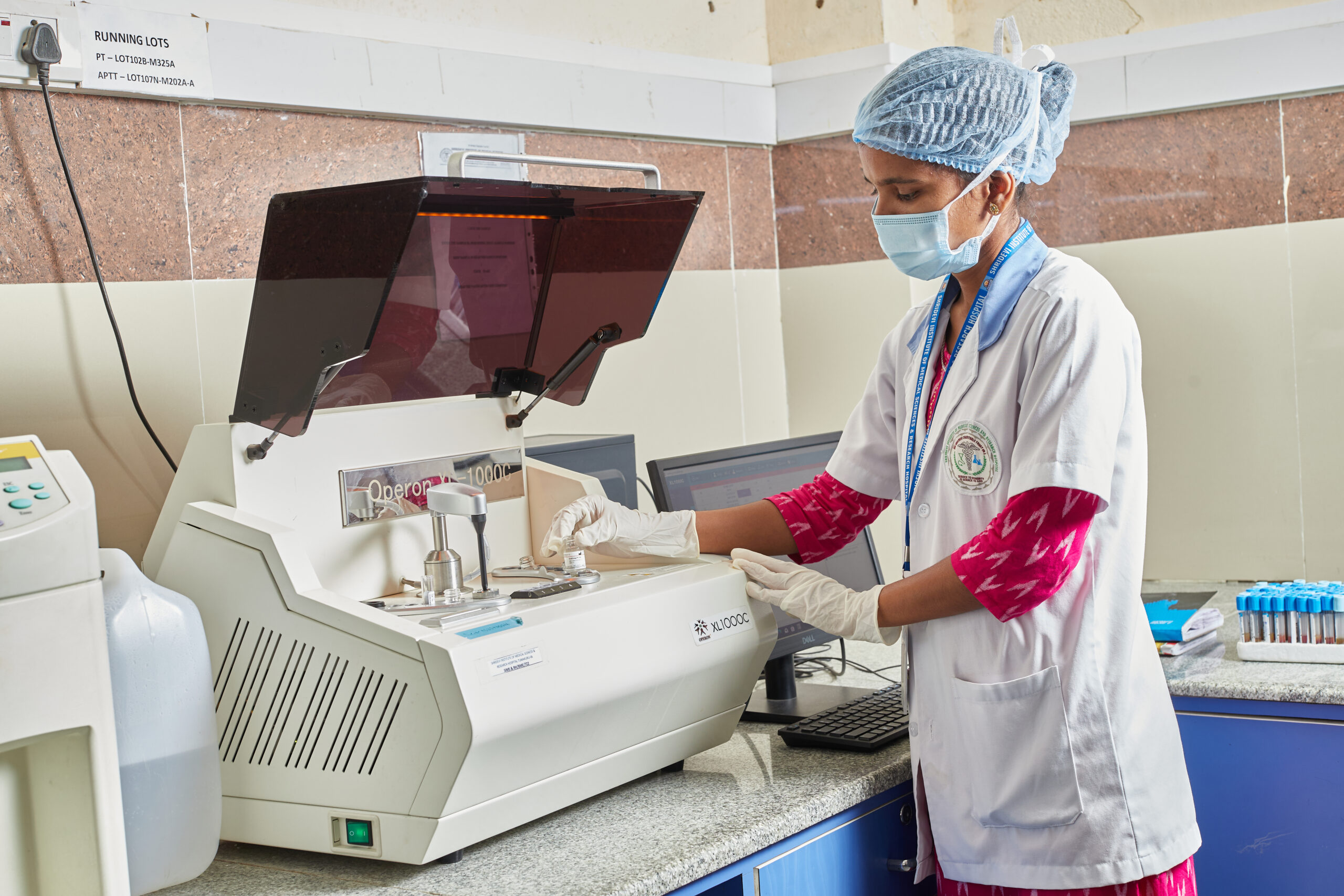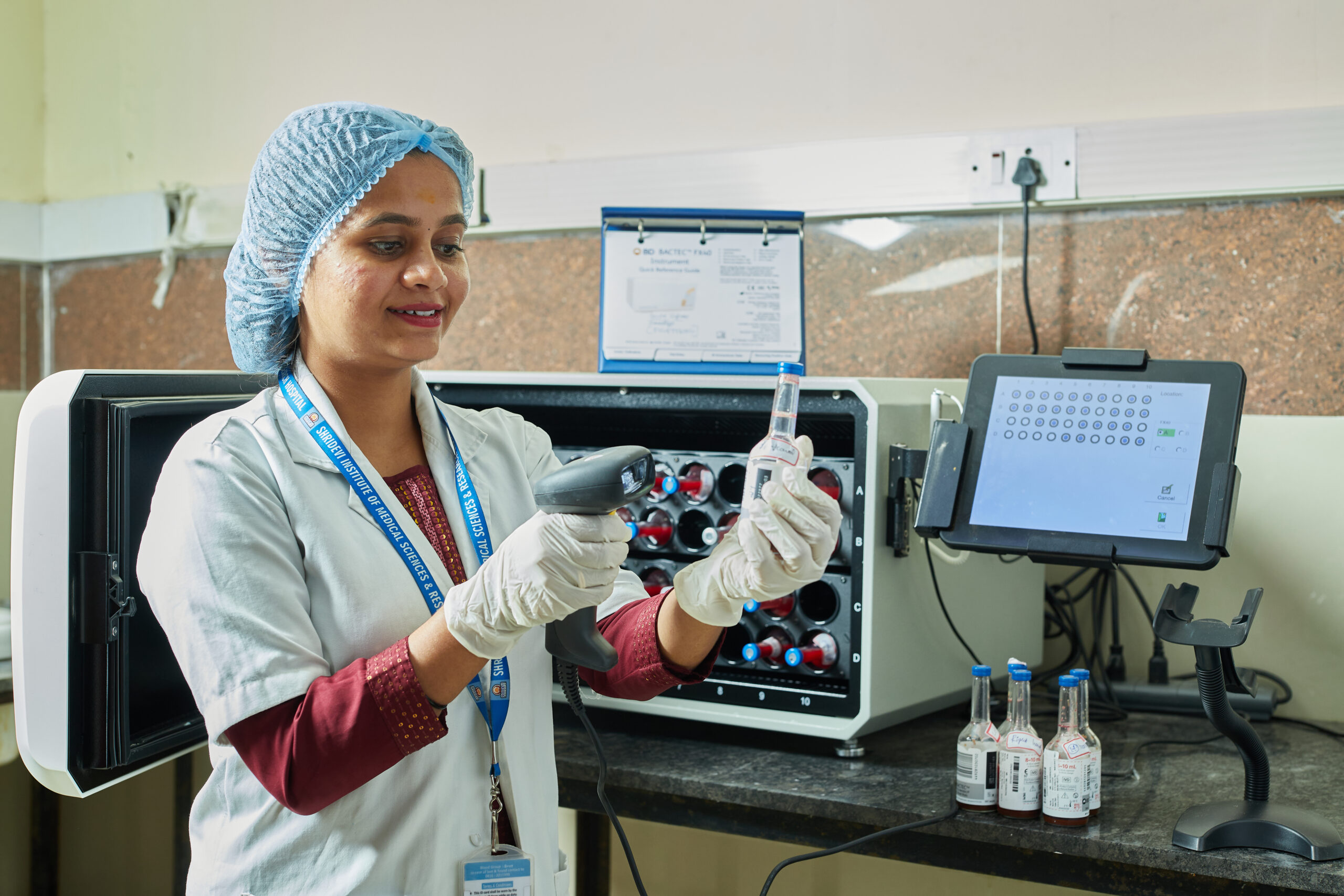
The Central Diagnostic Laboratory Services was established in the year 2013. The laboratory offers a comprehensive range of all routine and specialized tests for screening, diagnosis and monitoring of various diseases. The clinical tests offered through the laboratory services comply with the accreditation standards for Laboratories. The laboratory is committed to maintain the highest quality of performance using the latest technology and equipment wherever possible that enable us to provide dependable results in short turnaround time.
The quality policy of the laboratory is “ensuring accuracy, reliability, quality and timely-reporting of results by Team work and Evidence based practices while ensuring cost-effectiveness”

o Clinical Biochemistry: Clinical Biochemistry involves the use of biochemical measurements to support the diagnosis, treatment, prevention and monitoring of disease. Measurements are made in blood, urine, cerebrospinal fluid and other body fluids. Biochemical measurements can assist in determining the function of the kidneys, liver, heart, thyroid and other endocrine organs as well as assessing cardiovascular risk by measuring lipids (including cholesterol), or diagnosing and monitoring diabetes. The laboratory is equipped with fully automated equipments enabling reliable results in shortest possible turnaround time. The laboratory also has facilities for analysis of hormone levels and cancer markers.

o Pathology: Consisting of the following sections:
o Haematology: Hematology deals with the diagnosis of blood disorders like anemia, hemophilia, coagulopathies and malignancies including like leukemia, lymphoma, myeloma, etc.
o Histopathology: Histopathology involves the study of tissues and cells to diagnose conditions such as cancer, infections and inflammatory diseases. The laboratory also has facilities of Frozen Section and Immunohistochemistry.
o Cytopathology: It is a branch of Pathology that deals with the diagnosis of diseases like cancer by examination of cellularity in body fluids or secretions
o Clinical Pathology: It deals with the diagnosis of diseases through the examination of blood, urine and other body fluids.
o Microbiology and Serology: It consists of the sections of Bacteriology, Virology, Mycology, Parasitology, Mycobacteriology and Immunology. It deals with the diagnosis, treatment and prevention of infections. The laboratory is equipped with automated blood culture and serological systems enabling timely diagnosis and treatment of patients with infectious diseases.